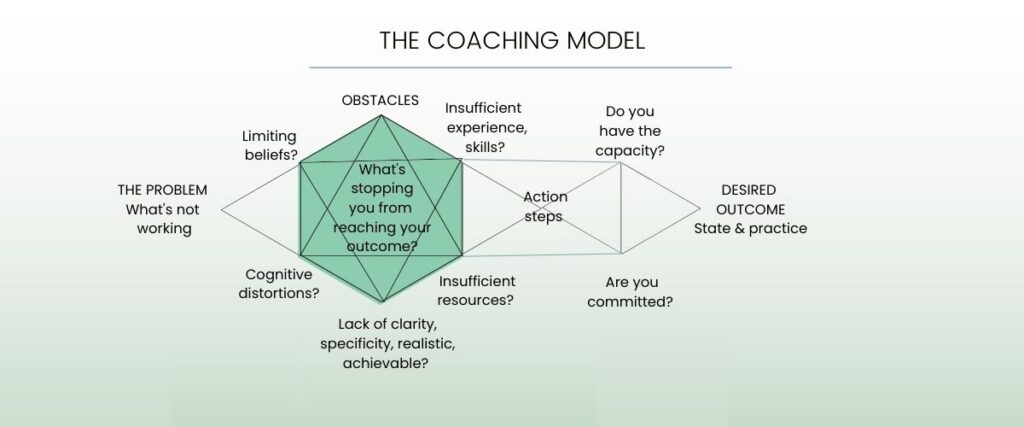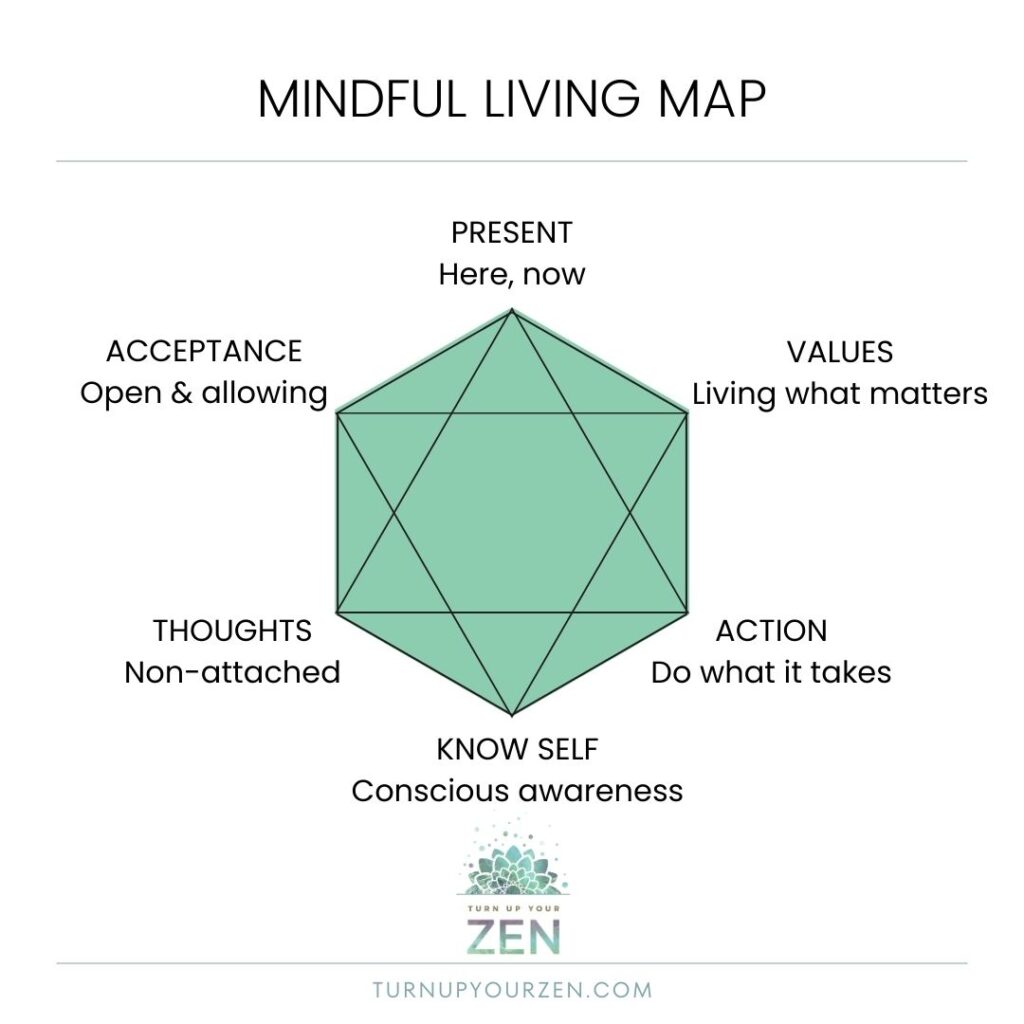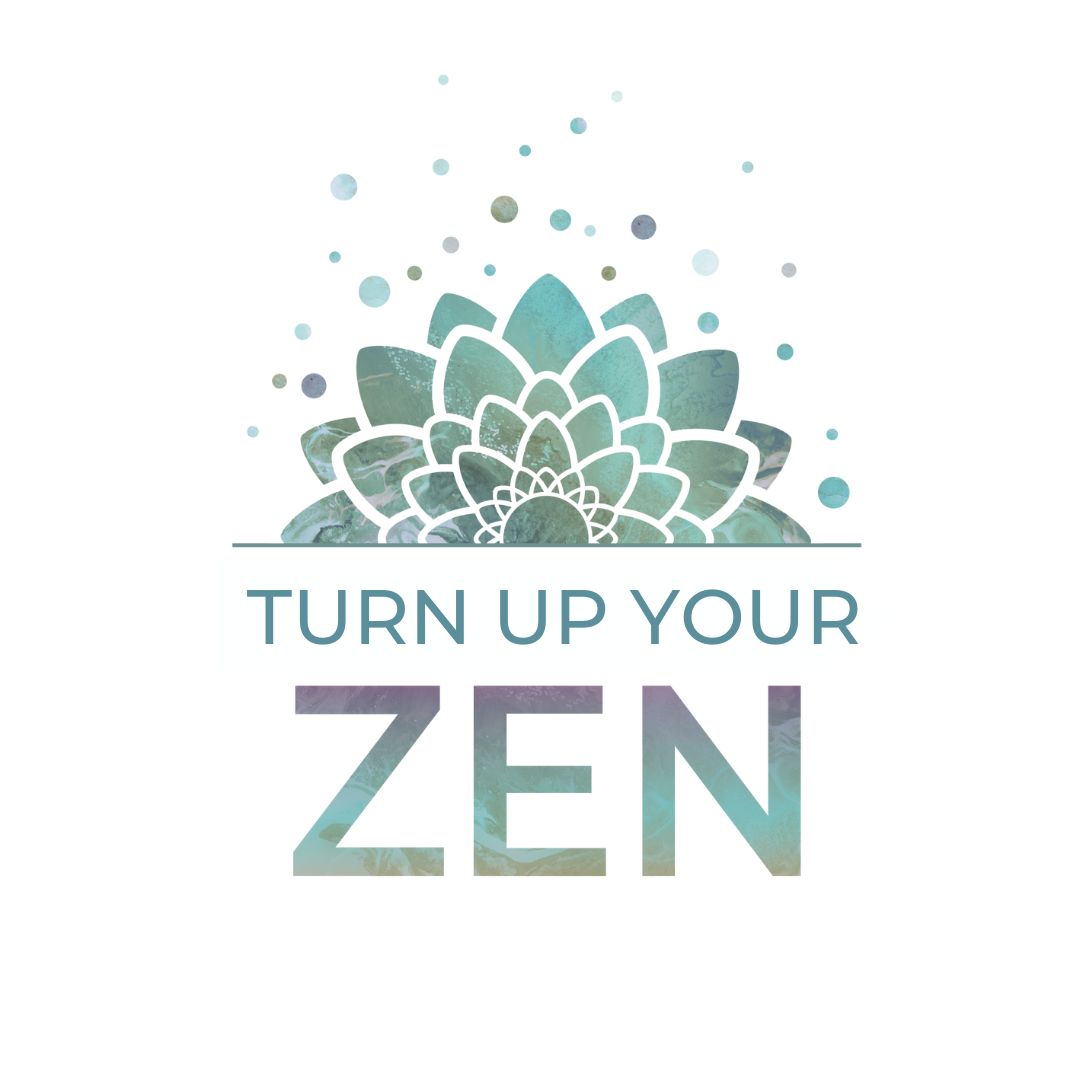How the coaching model works.
When most people think of a coach, they think of a sports coach, standing on the side lines, directing, and giving feedback and advice on performance. And whilst many who call themselves life coaches may adopt this approach, there is much more to the coaching process if it is to be effective in helping you create change.
If you are considering coaching, it’s helpful to have a good understanding of the process and what to expect ahead of your sessions. Many claiming to be coaches are more like mentors, teachers and guides. In this blog, I’m going to clarify the different types of coaches and describe two of the coaching models we use here at Turn UP Your Zen, so you know what to expect ahead of working with us.
The difference between life coaches, mentors and therapists
A life coach is a trained professional who can guide you from a problem situation you find yourself in now, to a desired outcome or state that you are unable to get to yourself. This includes helping you to identify the obstacles in your way and to recognise the steps, skills and actions that are required to get you there. A good coach will guide you to get clear on your goals so you can make the decisions that feel right for you and keep you accountable, but they wont tell you what you should do.
A mentor on the other hand is someone who has achieved success and results in a particular area and has the necessary experience to guide you to replicate the same. This may include sharing skills and expertise with you as well as setting goals and action steps that will get you to where you want or need to go. A mentor may have the experience to give you advice, but not necessarily the skills to support you when you face your own inner obstacles.
A therapist helps you work through difficult feelings and associated beliefs and conditioning to experience more psychological flexibility and self-understanding so you can think, feel and behave differently. This includes psycho-education and the development of self-management skills like emotional regulation, communication and self-care.
We use a combination of life coaching, mentoring and therapy to support our clients, and in this article, I will share the two models we use most to support clients in finding more freedom and peace of mind.
The Coaching Model
The coaching model draws on concepts from Meta-States, NLP, and Neuro Semantics.

Essentially it involves 3 major steps
-
- Recognising where you are now, what’s not working, how that’s a problem and why you want to change.
-
- Recognising how you would like things to be instead, creating a clear vision of your desired outcome. What exactly will be different, why that’s important to you and what it will mean for you when that future is here.
-
- This step is where we really get into it – what are the steps required to get from step 1, the problem, to step 2, the desired outcome. We do this by unpacking the obstacles in your way – limiting beliefs, cognitive distortions, lack of clarity, is the outcome clearly defined using SMART goals (specific, meausurable, achieveable, realistic and time bound), do you require new skills like communication, self-care and emotional regulation? Once we’ve worked through the obstacles, we explore your capacity and commitment to take the action steps required. This is where clients really start to experience the changes they hoped for.

The Mindfulness Model
The mindfulness model takes our work to a new level. Rather than simply focusing on change that involves action steps resulting in new beliefs and understanding, we focus on doing and being. Here mindfulness becomes more than a style of meditation to manage our stress, it becomes a way of living our lives with kindness, compassion, and presence. Negative thoughts and consequential actions of numbing or escaping are addressed with kindness and self-love. I love this model so much because it’s where we really start to identify what’s most important and how to live to those values in our day to day lives. We move from mulling over ideas to a lived experience, integrating real change.
The invitation exists to move from living unconsciously in a state of coping to living consciously in a state of thriving and leading.
To find out more about me and my journey with coaching and mindfulness, you can check out the About Me page. There you will find the story of how I came to discover the benefits of mindfulness when dealing with depression, home schooling. It’s that journey that qualifies me to tick the box of mentor, having gone from being there in the struggle to living mindfully.
If you would like to discuss how coaching might help you in your life, book a free discovery call here at a time to suit you
